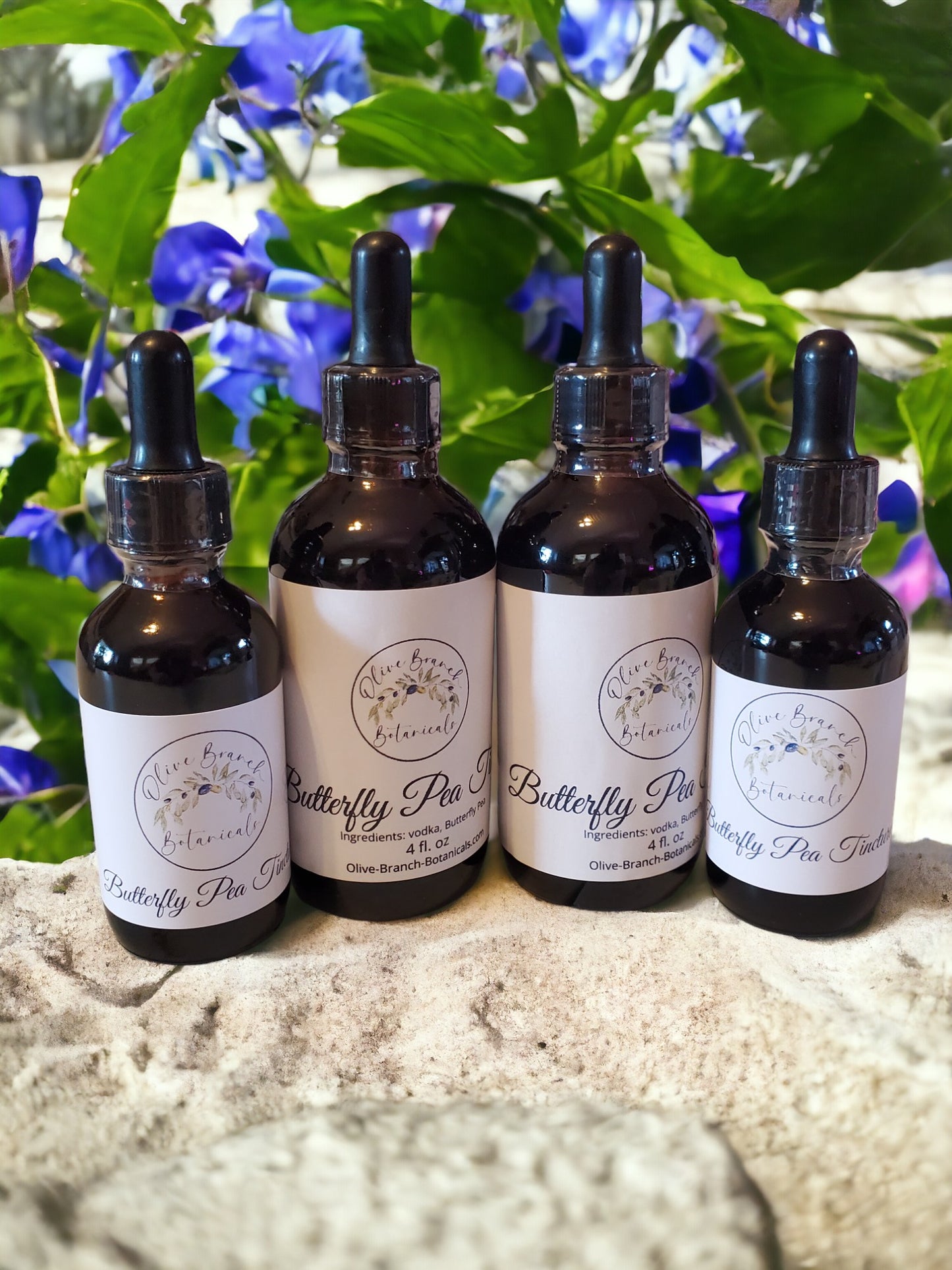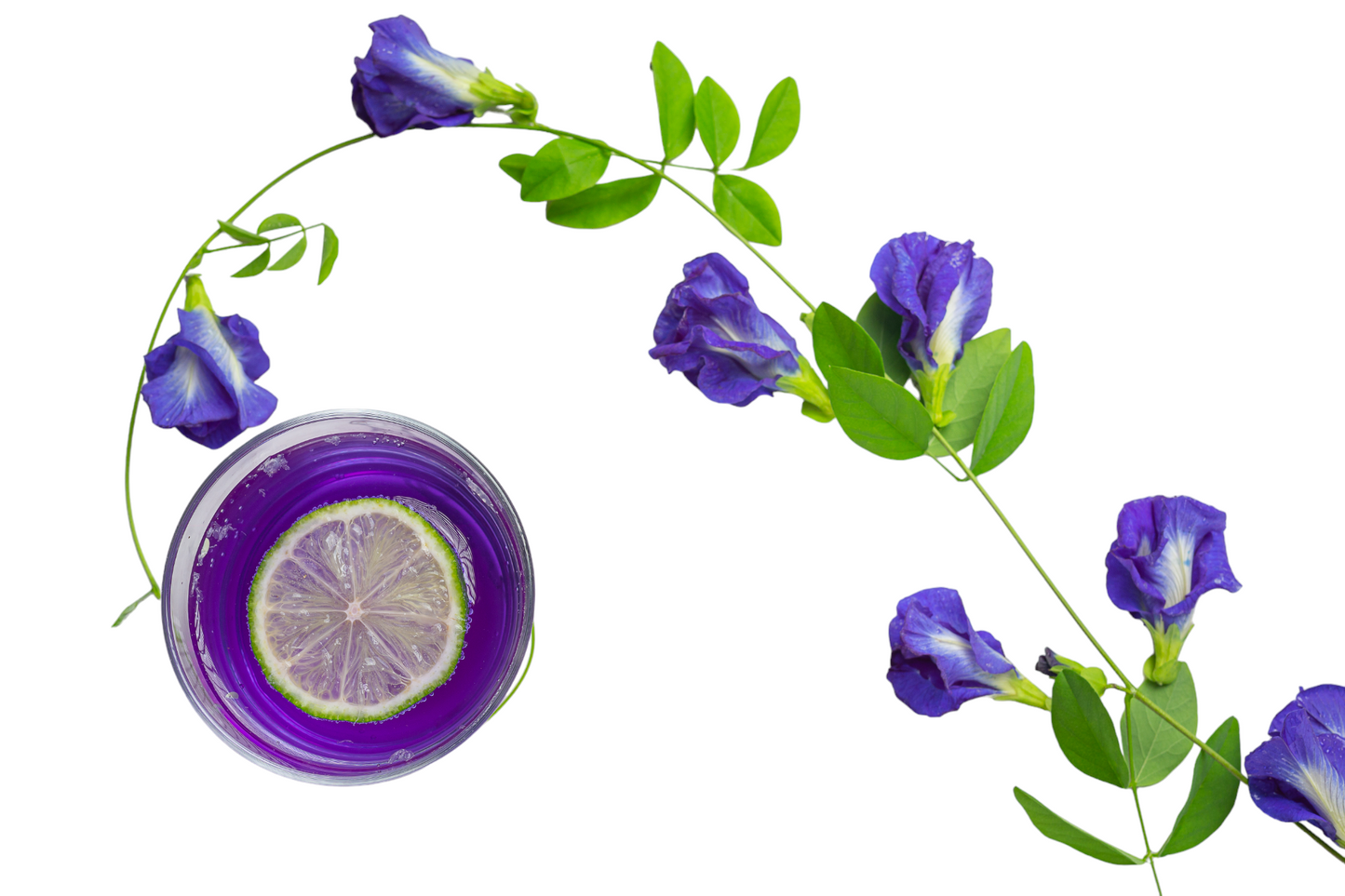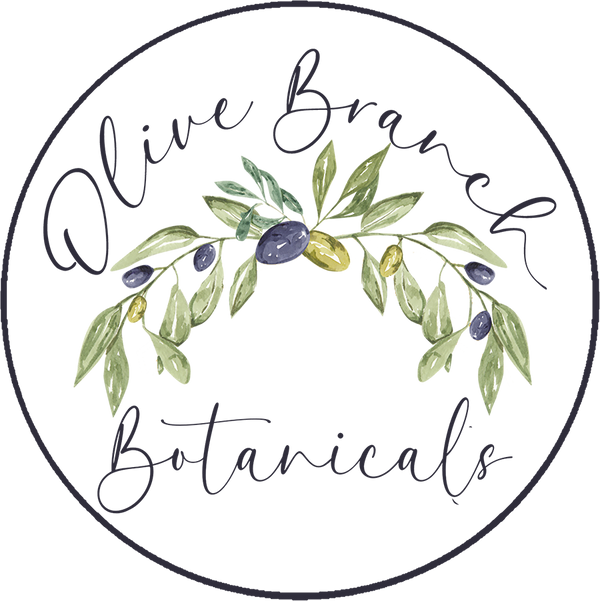Olive Branch Botanicals
Butterfly Pea tincture
Butterfly Pea tincture
Couldn't load pickup availability
Butterfly pea, scientifically known as Clitoria ternatea, is a flowering plant native to Southeast Asia that has gained popularity for its potential health benefits, including its purported effects on weight loss.
Antioxidant Content: Butterfly pea is rich in antioxidants, which combat oxidative stress and inflammation, supporting metabolic function and weight management.
Metabolism Support: Some research suggests that compounds found in butterfly pea flower may have metabolic-boosting effects, which could potentially enhance calorie burning and support weight management.
Appetite Control: Some proponents suggest that consuming butterfly pea flower tea may help reduce appetite and cravings due to its unique taste and potential effects on satiety hormones. By promoting feelings of fullness, it could potentially aid in calorie control and weight management.
Skin Health: Butterfly pea is sometimes used topically to promote skin health. Its purported benefits include improving skin elasticity, reducing the appearance of wrinkles, and brightening the complexion. These effects may be attributed to its antioxidant and anti-inflammatory properties.
Anti-inflammatory Properties: Compounds like flavonoids and anthocyanins in butterfly pea help reduce inflammation, which is associated with obesity and metabolic disorders.
Dietary Fiber: Butterfly pea contains dietary fiber, promoting satiety, regulating appetite, and supporting digestive health by preventing constipation.
Blood Sugar Regulation: Research suggests butterfly pea may help regulate blood sugar levels, reducing cravings and fluctuations that can lead to overeating and weight gain.
Stress Reduction: Butterfly pea's calming effects may help reduce stress and anxiety, potentially preventing emotional eating and aiding in weight management.
**Disclaimer**
These statements have not been evaluated by the Food and Drug Administration. This product is not intended to diagnose, treat, cure, or prevent any disease. Similarly, statements regarding dietary supplements have not been evaluated by the FDA and are not intended to diagnose, treat, cure, or prevent any disease or health condition.
Before starting any new treatment, especially those involving herbal extracts, individuals should consult with their healthcare providers to ensure compatibility with existing conditions or medications. This information serves to educate and inform, not to replace medical advice. While many herbs are generally safe, potential medical interactions exist.
Share




